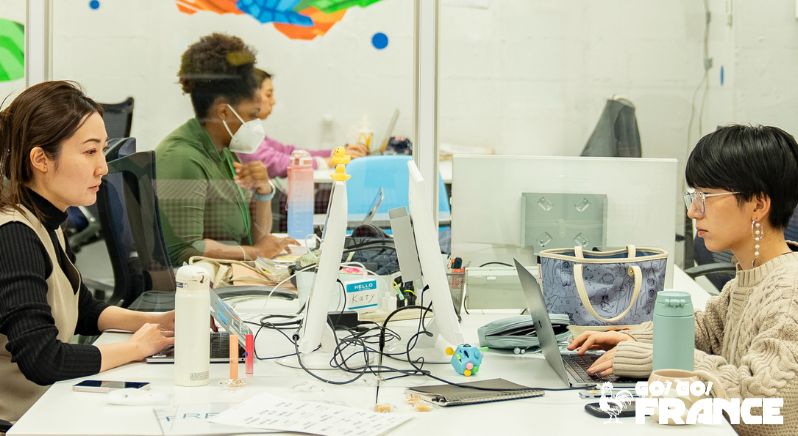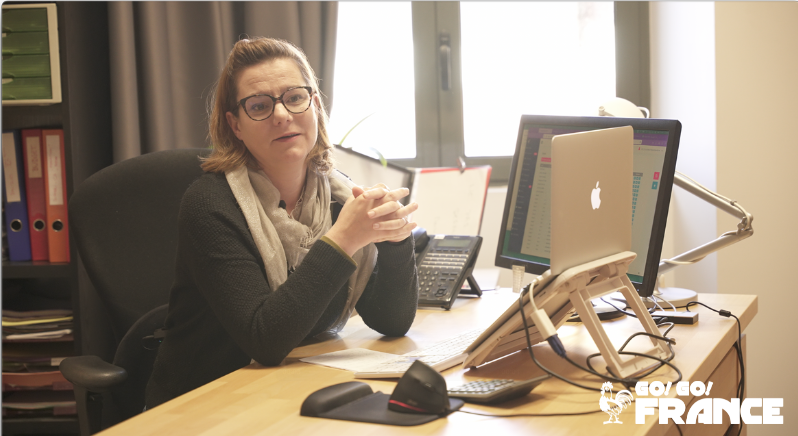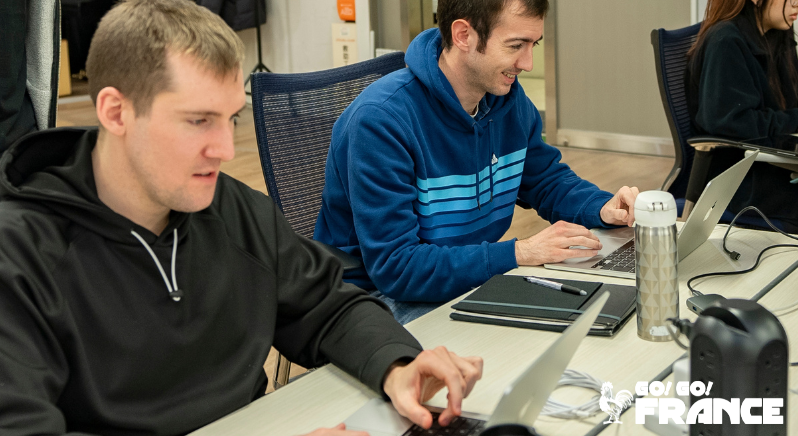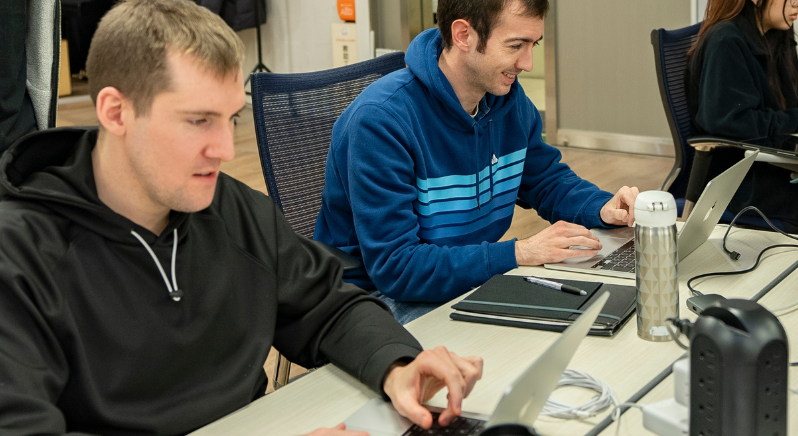Graduating from university is an exciting milestone, but the next big step — finding a job — can feel overwhelming. If you are planning to stay in France and build your career there, keep reading as this article is for you!
Overview of the French job market
The French job market is competitive, particularly for recent graduates, with industries like technology, engineering, fashion, and finance seeing high demand for skilled workers.
Many companies, even in international environments, expect fluency in French, and proficiency in additional languages such as English and a third language can make candidates stand out significantly. Those who are bilingual or multilingual have a distinct advantage. Fluency in French, combined with English and another language, will increase your chances of success.

Resume and cover letter
In France, a well-crafted resume (CV) and a personalized cover letter (lettre de motivation) are crucial for making a positive impression on employers. It’s important to follow specific guidelines when preparing these documents, as there is an implicit structure and format to adhere to.
With competition growing, more and more companies are now using AI tools to scan the hundreds of resumes and cover letters they receive from candidates. Therefore, it is important to follow the standards to avoid being eliminated from the process just because a bot didn’t select your application.
Learn more about the French resume and cover letter here:
https://gogofrance.com/en/blog/how-to-write-a-french-resume/
https://gogofrance.com/en/blog/how-to-write-a-french-cover-letter/
Preparing for job interviews
First and foremost, punctuality is essential. Being on time is highly valued in France, so ensure that you arrive at least 10-15 minutes before the scheduled interview time.
Preparing for your job interview is key to success. Here are some essential steps to ensure you’re ready:
- Research the company thoroughly: Before the interview, make sure to research the company in detail. Familiarize yourself with their values, mission, and the specifics of the role you are applying for. Understanding the company culture and the challenges they face will allow you to tailor your responses to demonstrate how you can contribute to their goals.
- Practice common interview questions: Recruiters often ask the same ice-breaker questions and inquire about your motivation, career goals, and past experiences. Preparing your responses in advance will help you feel more relaxed on the day of the interview.
- Prepare questions for the recruiter: It’s common for recruiters to ask “Do you have any questions for us?” at the end of the interview. Use this opportunity to demonstrate your interest in the role. Ask questions about the team, the company’s culture, and potential career development opportunities.
You can read more about common job interview questions and essential phrases here: https://gogofrance.com/en/blog/job-interview-in-french/
Start job hunting
LinkedIn is widely used in France for professional networking and job searching. Make sure your profile is complete and updated, and consider joining groups related to your field. Connecting with alumni from your university or others working in your sector can be a great way to start expanding your network.
You can also get support from France Travail, formerly known as Pôle Emploi. It is the French national employment agency, offering a range of resources for job seekers. You can access job listings, professional advice, and even assistance with writing your CV and preparing for interviews, as workshops on these topics are often offered.
Learn more about France Travail: https://gogofrance.com/en/blog/france-travail-pole-emploi-guide/

Comply with immigration
If you are a non-EU graduate planning to stay in France, you will need to ensure that you apply for the appropriate visa to live and work. You may currently be on a student visa and already searching for a job before it expires. Finding a job can take time, and you might not secure your dream job before your visa runs out.
However, there are several visa options available depending on your career goals:
- Job seeker visa: This visa is available to graduates from recognized institutions. It allows you to stay in France for up to one year while looking for a job. If you find employment during that time, you can apply for a work visa.
- New business creator visa: If you want to start your own business, you can apply for this visa. However, you need to establish a company in a field related to your training and demonstrate the economic viability of your project.
Read more about the job seeker visa here: https://gogofrance.com/en/blog/job-seeker-visa-france-guide/

What you need to know about French work culture
Understanding French work culture is crucial to thriving in your new job. Here are a few key elements to consider:
- Work-life balance: France places a strong emphasis on work-life balance. Maintaining a clear boundary between work and personal life is important. Overworking is not necessarily seen as a sign of being a hard worker and dedicated person. Instead, it might be perceived by your manager and colleagues as a lack of skills or poor performance, as you are unable to complete your duties within the assigned time.
- Teamwork and autonomy: French work culture values both collaboration and autonomy. While team cooperation is expected and being a good team player is essential, you will also be expected to take initiative and show independent thinking in your role.
- Punctuality: Punctuality is highly valued, and being on time is seen as a sign of respect for others’ time.
- Holidays: The country has a 35-hour workweek and paid vacation days. Make good use of them.
- Lunch breaks and pause café: Lunch breaks can be long, sometimes lasting up to 2 hours. It is also quite common to take several short breaks called pause café before and after lunch. People usually gather around the coffee machine to discuss both work-related and non-work-related matters. It’s part of the culture, so make sure to embrace it fully.
For more insights and helpful tips about living and working in France, be sure to visit our blog!





